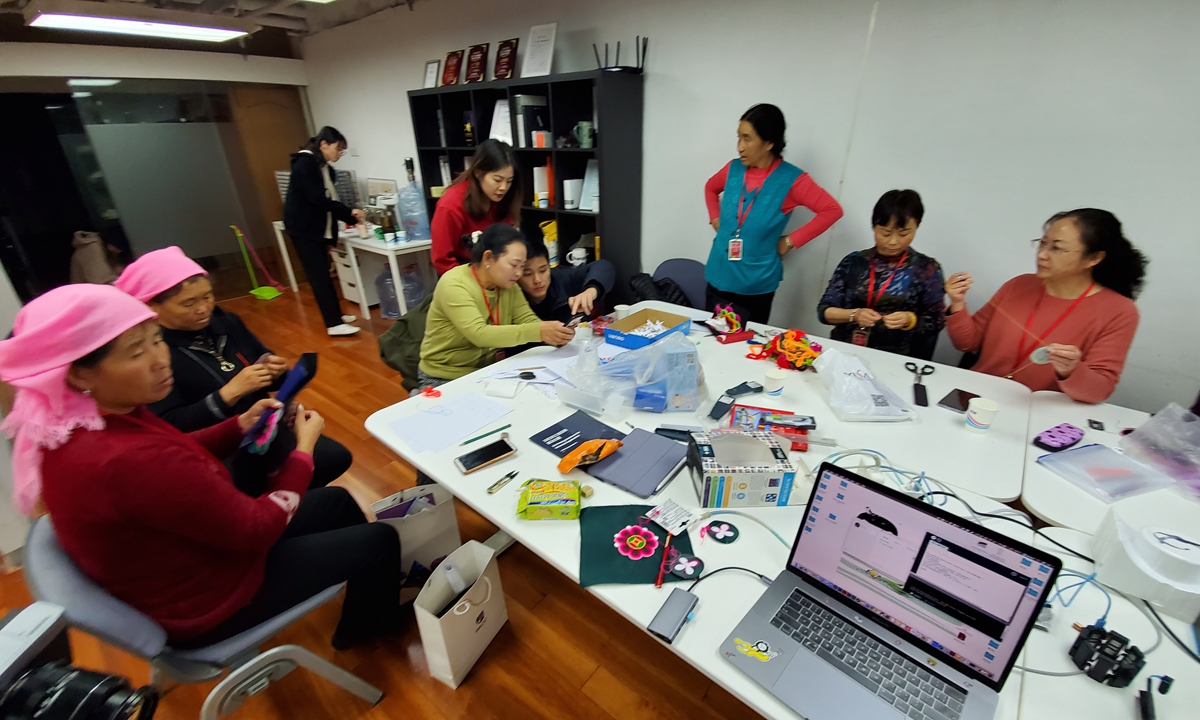ARTS / CULTURE & LEISURE
Chinese university gains global attention for combining intangible cultural heritage skills with technology

Photo: Courtesy of Li Qiansheng
Could you ever imagine that you are able to learn the valuable Chinese intangible cultural heritage embroidery skills by just wearing an electronic sensing device on your head and wrist?
An experimental workshop of Shanghai University is promoting the project and gained a lot of attention at the opening ceremony of the 6th National College Student Art Exhibition in Shanghai on Tuesday.
Li Qiansheng, executive deputy director of the Department of Digital Art of the Shanghai Academy of Fine Arts at Shanghai University, told the Global Times on Thursday that the inheritance of intangible cultural heritage has always been a difficult point in the protection of intangible cultural heritage. Li hopes that the innovative experimental workshop can try to solve this problem. They are currently in the second phase of the workshop’s innovative attempt.
The wearable device recorded the brain and myoelectric state of the inheritors during embroidering. And data such as the length of the thread used and the time of embroidering are the “database” for the digital inheritance of intangible cultural heritage.
At the same time, the device also recorded the students’ brain electricity and electromyography during the process of learning embroidery skills. The students could know their difference after seeing the contrastive data.
“In the embroidering process, the inheritor relaxes his emotions and uses his muscles more skillfully, while the students are usually more nervous,” said Li.
However, Li pointed out that the skill can be only used for some visual skills. Some intangible cultural heritage skills in listening and speaking are not applicable.
He added that the next step for them is to simplify the data. “In the future, we hope that these data can be displayed more easily and understandably, and we can open several stores that can provide data in learning Chinese intangible cultural heritage, just like the current digital product stores,” said Li, noting that he hopes intangible cultural heritage can be taught and learned remotely through the wearable devices in the experience stores.
The workshop has cooperated with the Queensland College of Art by inviting some students in the school for experiencing the project in June 2019. The students from overseas could enjoy the beauty of China’s traditional embroidery skills through the device.
“They thought the idea of combining the art and technology was great, and they also showed interest in importing the skill to their school,” said Li.
Due to the COVID-19 pandemic, the second cooperation project between the two schools in 2020 has been canceled, but Li said they would continue welcoming the exchanges and communications with more universities in the world.

